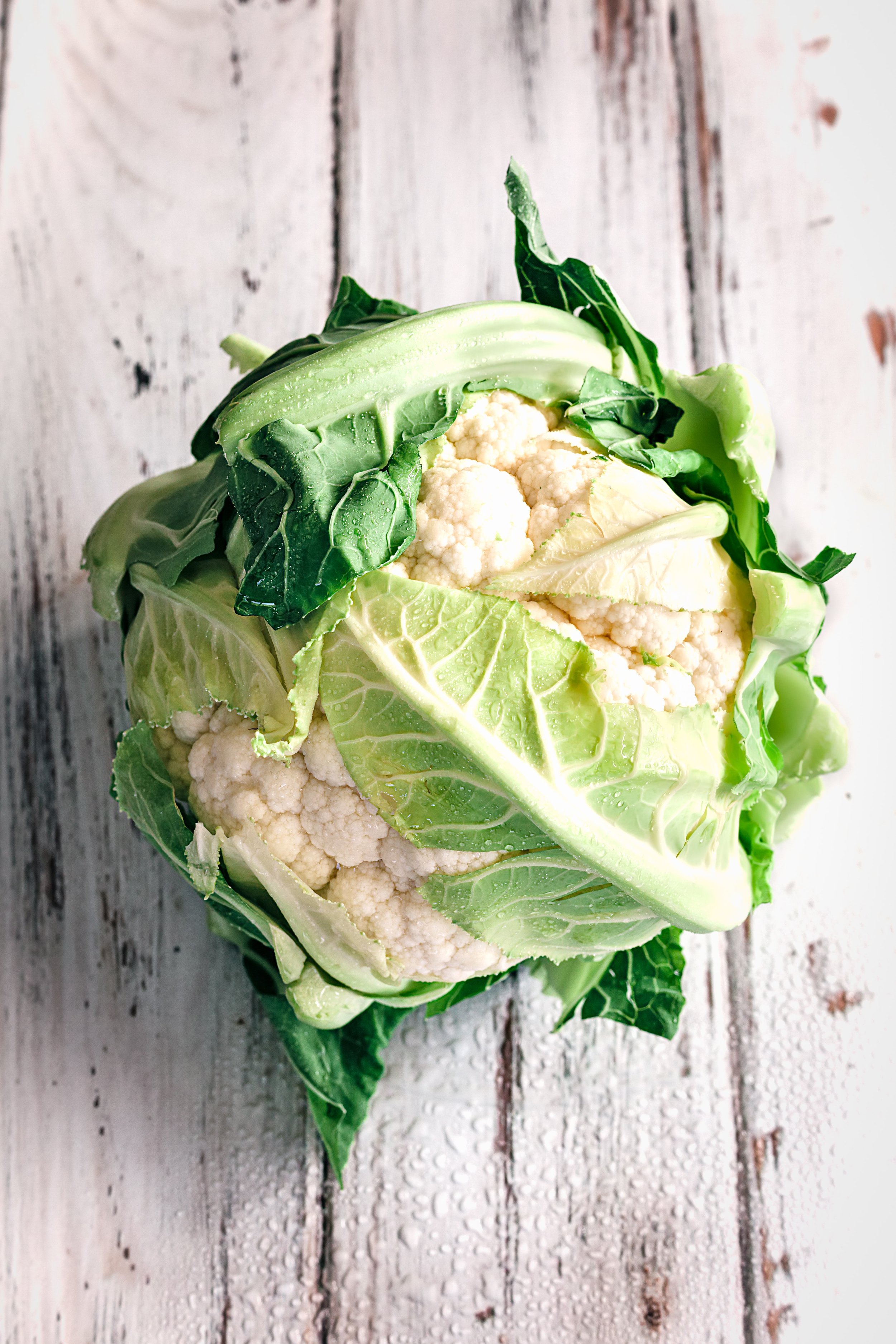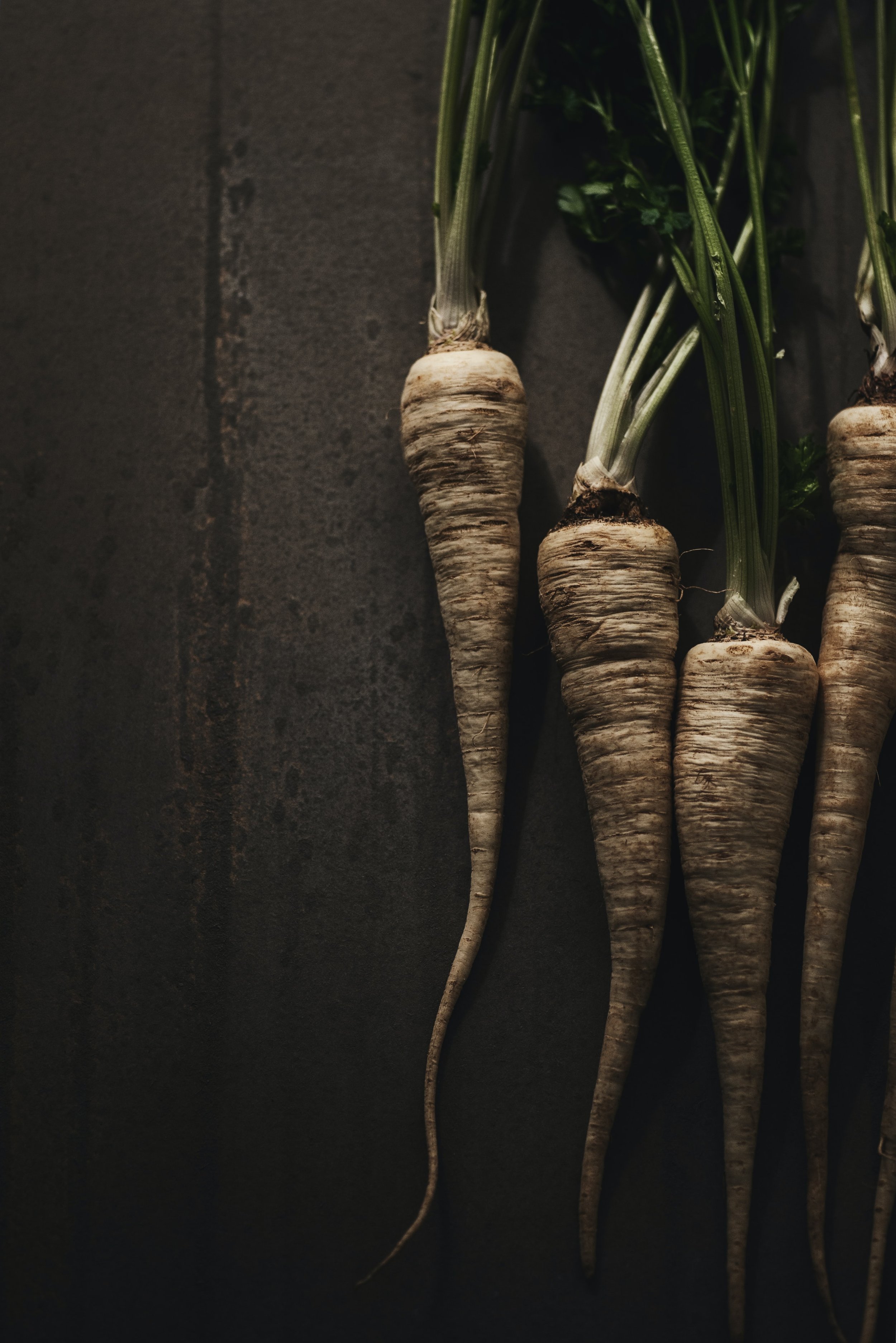What’s In Season: February
Cauliflower is an excellent source of vitamins (C, K & Choline) and minerals. Vitamin C plays an important role in the collagen production that protects our joints and bones from inflammatory damage. Choline plays a role in our sleep, memory, and learning and muscle movement.
Containing a high amount of fibre and water, both of which are important for our digestive health and preventing constipation. Similar to other cruciferous vegetables, cauliflower is particularly high in antioxidants. They are beneficial for reducing inflammation and protecting against several chronic diseases.
If you are looking to reduce your exposure to pesticide residues, we recommend choosing organic. If this isn’t an option, remove more of the outer leaves, most likely to have any residues left from spraying.
Parsnips are a great source of vitamin C, vitamin K, and folate, as well as several other important micronutrients, phytonutrients and antioxidants. They contain high levels of soluable fibre, which can support regularity, improve your digestive health and enhance heart health.
They have a sweet and nutty flavor, which makes them very versatile; they were even used as a sweetening agent for foods before cane sugar became a major import to Europe. From baking to boiling, from roasting to mashing, in soup, stews, salads, and more. Parsnips season begins after the first frost, when you get the freshest variety. Avoid woody and over-matured roots as they have tough fibre which is hard to digest.
Photo by Jennifer Schmidt on Unsplash
Photo by Jasmine Waheed on Unsplash



